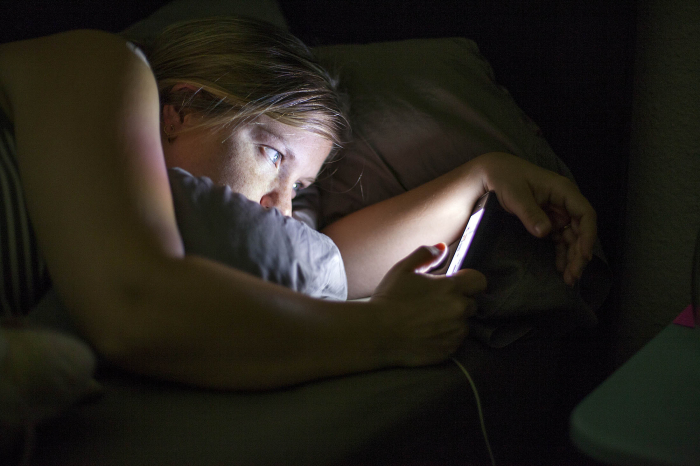By reaching for your phone, "you’re telling your brain it’s time to wake up," Dr. Jeff Rodgers, DMD, D-ABDSM, D-ASBA, a sleep expert and dental sleep medicine practitioner, says, according to Bustle. "The blue light from your phone mimics daylight and suppresses the production of melatonin, the hormone which regulates your sleep-wake cycle."
And it doesn't take much to have a negative impact. "Just glancing at the time can be enough to wake you up, while checking email, reading news, or engaging in other activities such as playing games or texting can make getting back to sleep difficult or impossible," Rose MacDowell, sleep expert and chief research officer at Sleepopolis, tells Bustle.
It's important to keep in mind, too, that these activities can spike anxiety, even if you're using them to "relax" and get back to sleep. "Checking texts, emails, and social media can cause your brain to go into 'worry-mode,'" Rodgers says. If someone didn't text you back, now you're wondering why. If you get an important work email, now you're thinking of a response. And none of that is conducive to sleep.
"Exposing your brain to your phone and thus 're-connecting' to all the stressors in the world can activate anxiety, making it a lot more difficult to fall back asleep — particularly if, while 'sleeping,' half of your brain is actually waiting for a text or email to come through," Rodgers says.
















































